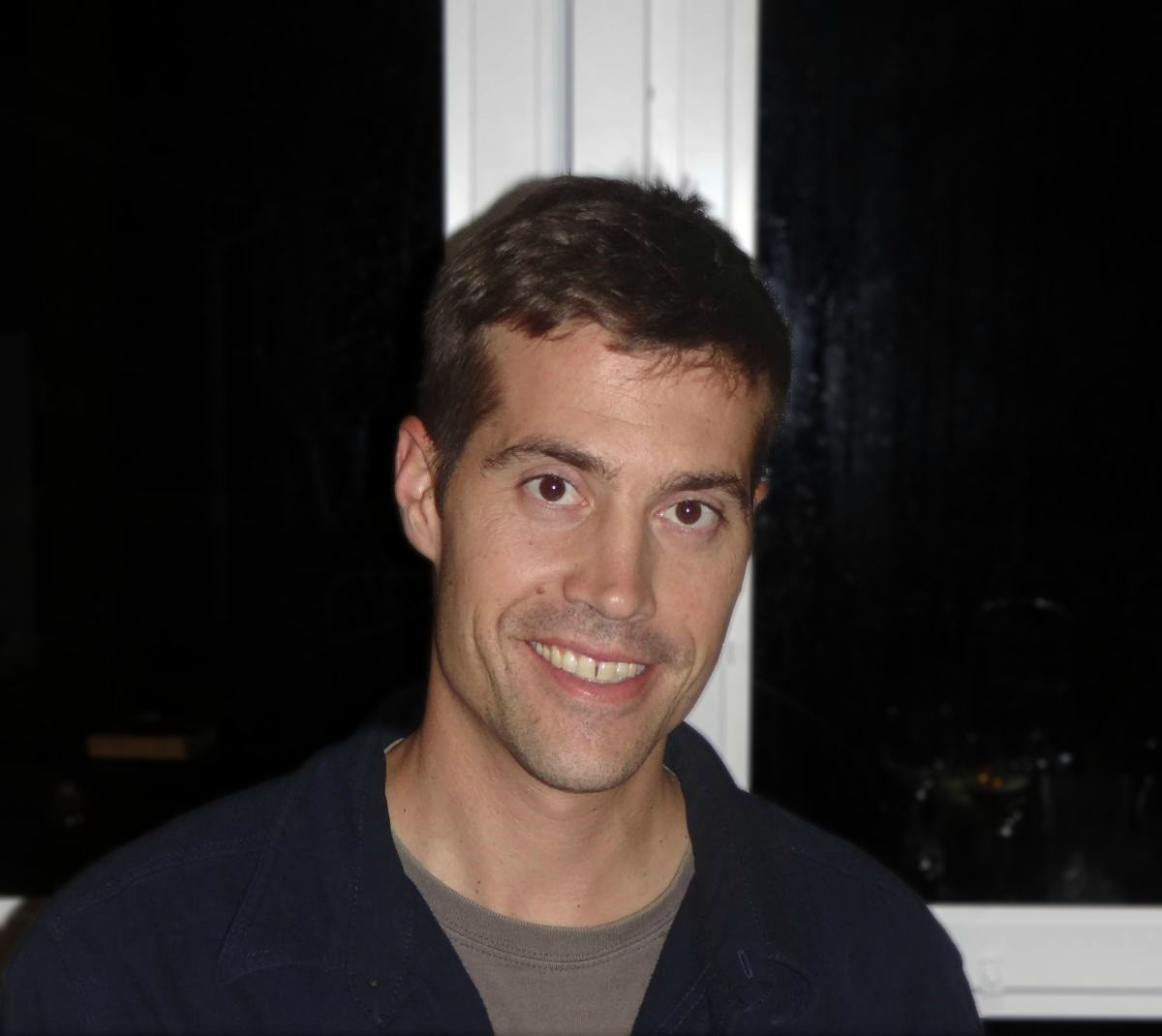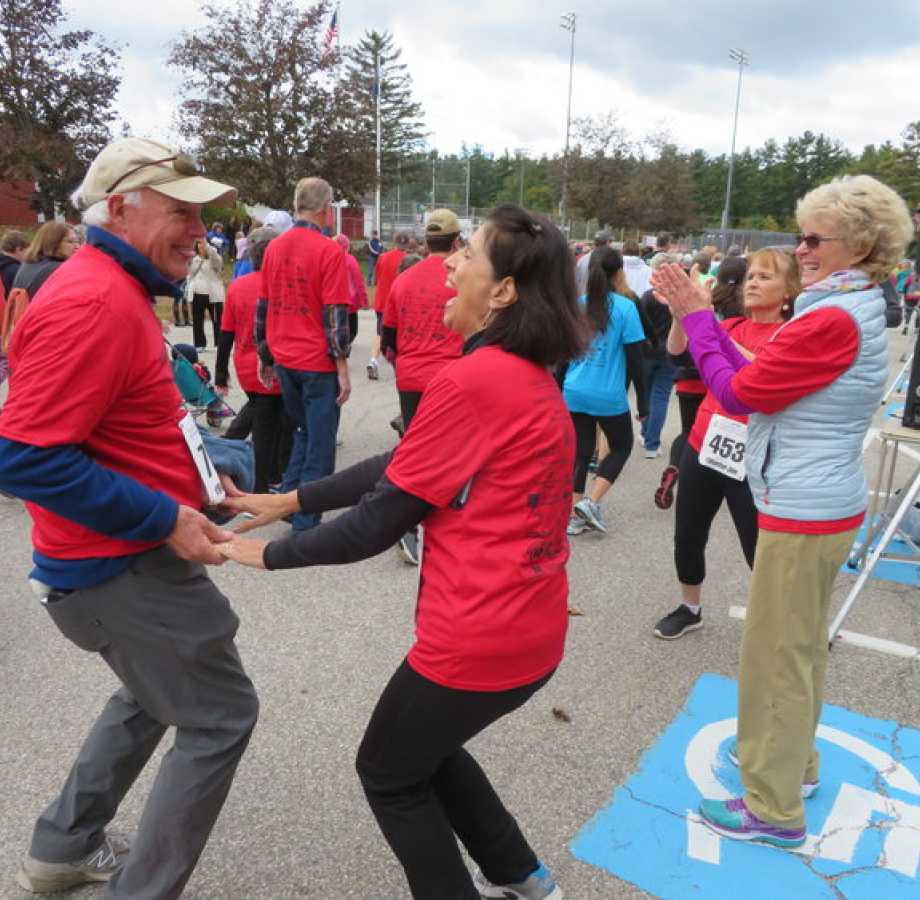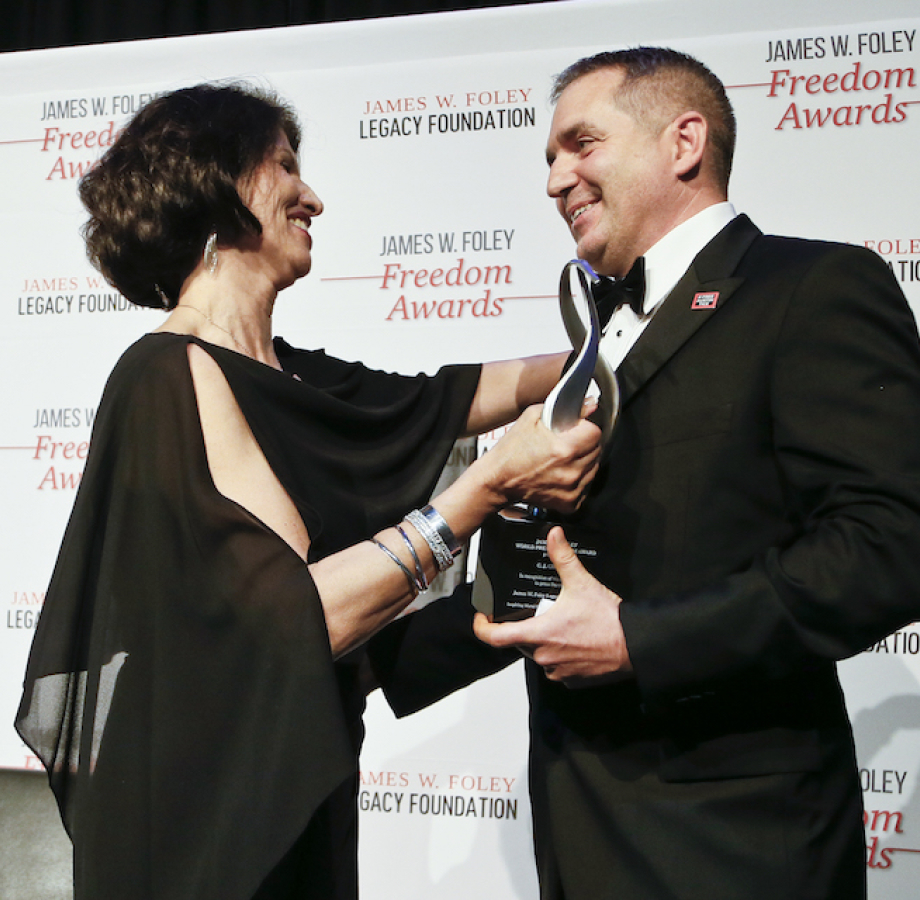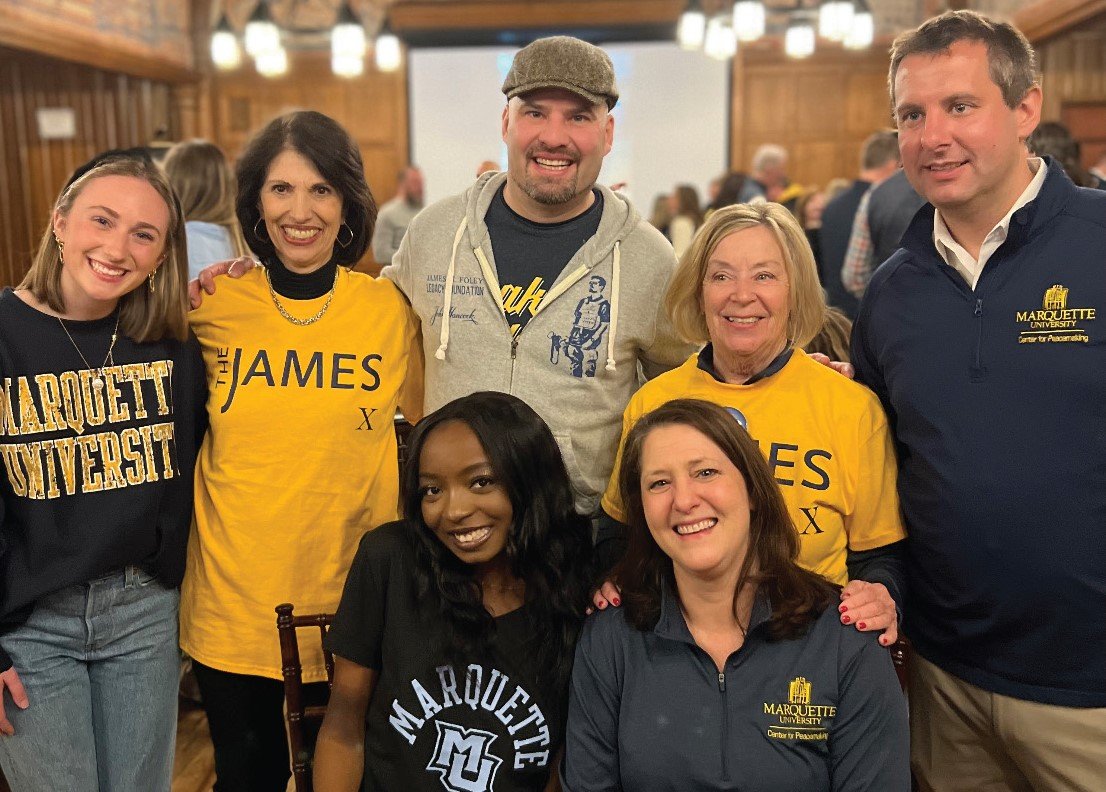This is Jim’s story as witnessed BY HIM, by those who knew him and therefore loved him, and BY those who never knew him BUT came to love him
A Young Man
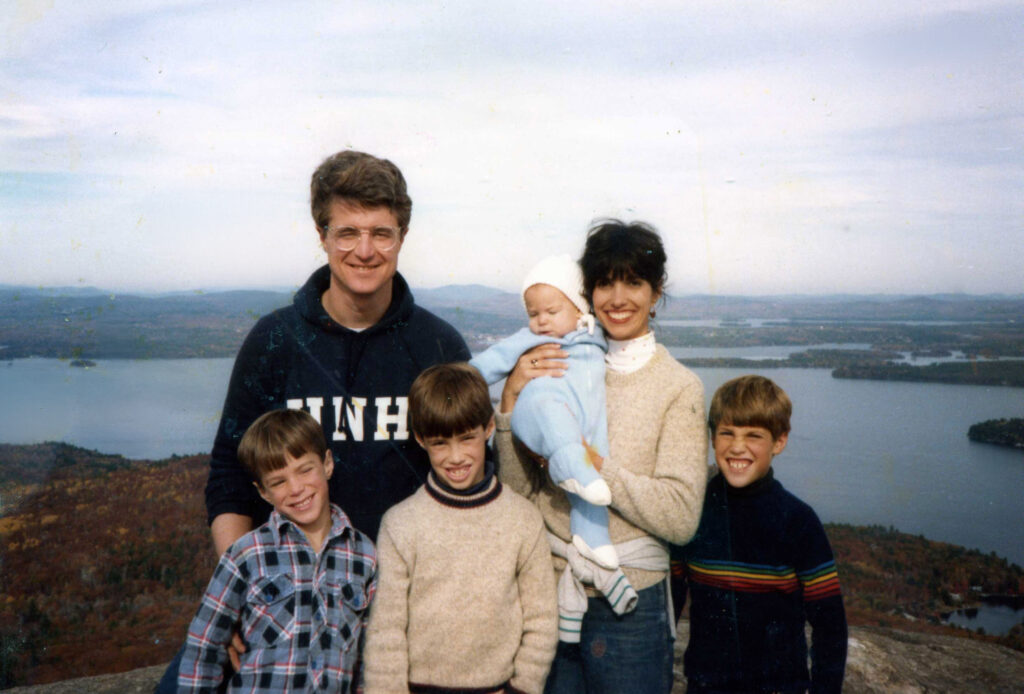
As a child, Jim was curious, as all children are. But he never lost his child-like curiosity. Throughout his life he sought out the stories of his fellow humans, to experience their joys and their sufferings.
[Please click or tap on to learn more about each topic]
Wolfeboro, New Hampshire
James Wright Foley, Jim, was born on October 18, 1973 in Evanston, Illinois where his dad was finishing his medical internship at Cook County Hospital. He would be the first of five children of Diane and John Foley of New Hampshire and would soon end up in the town he grew up in: beautiful Wolfeboro, New Hampshire.
Kingswood Regional High School
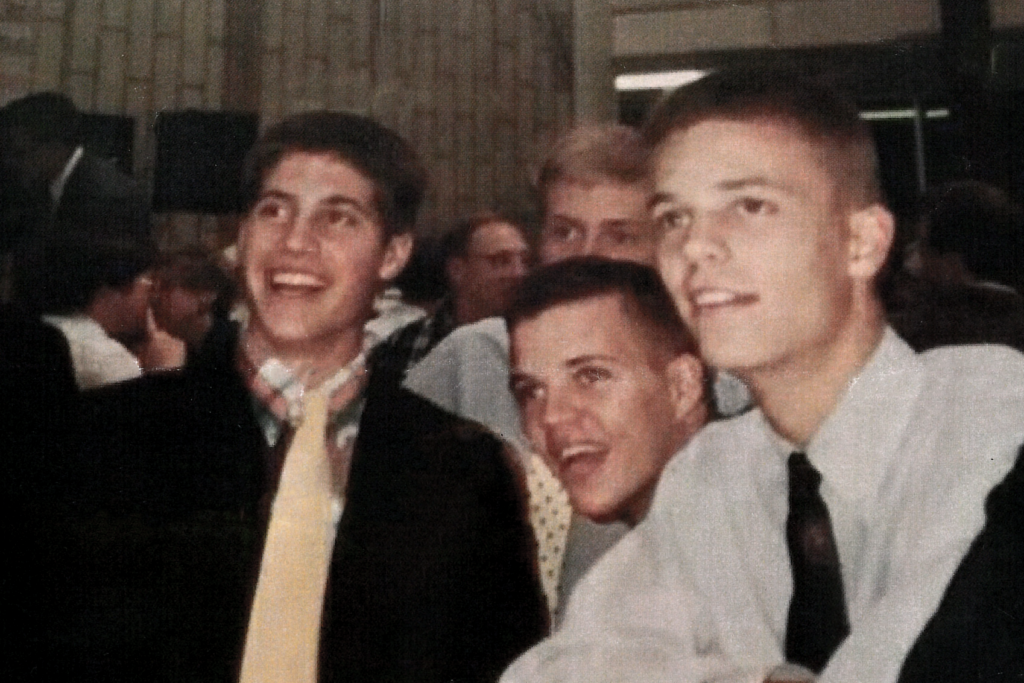
Jim attended Kingswood Regional High School in Wolfeboro where he graduated in 1992. During his years there he forged lifelong friendships. Among them, Brian Oakes , who produced and directed Jim: The James Foley Story, a documentary on Jim’s life and captivity.

Jennifer Do Carmo, whom Jim met in Swim Team and now a teacher at Kingswood, went on to develop the James W. Foley Global Citizenship High School Curriculum for use in classrooms anywhere.
A Lifelong Learner
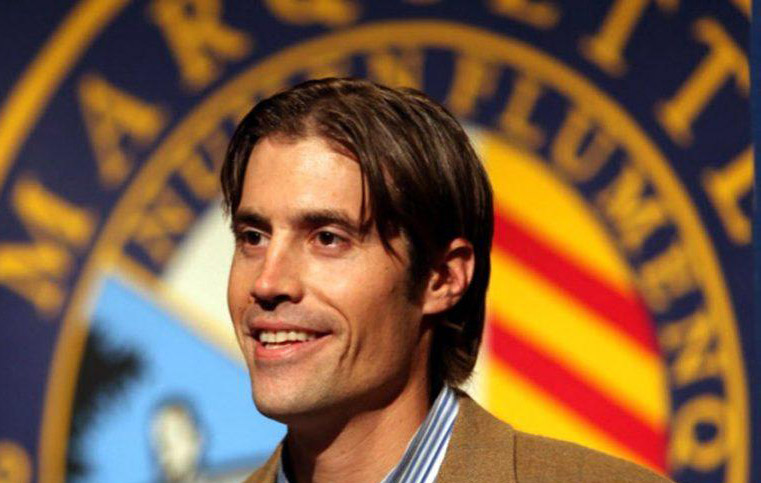
Jim never stopped learning. After graduating from high school, he kept seeking knowledge. He went on listening to and learning from anybody who would talk to him.
Marquette University
In 1996, Jim graduated from Marquette University in Milwaukee, Wisconsin with a degree in history and Spanish.
Very soon after he was released from his captivity in Libya, he returned to his alma mater:
U. Mass in Amherst
Jim completed a Master of Fine Arts program in creative writing at the University of Massachusetts in Amherst in 2003.
Medill School of Journalism
In 2007 Jim started his studies in journalism at the Medill School of Journalism at Northwestern University in Illinois. He would graduate in 2008 with a Master of Science degree in journalism in 2008.

After Jim’s murder, the Medill School of Journalism renamed their journalism award to The James Foley Medill Medal for Courage in Journalism .
A Teacher

While Jim was learning, he was also teaching. While in Teach for America (TFA), he taught inner city students at Lowell Elementary School and later new TFA recruits. While completing graduate school at UMass Amherst creative writing program, he taught undergraduates and single mothers at the local Care Center; and while at Medill Northwestern, taught English at Cook County jail.
Teach for America
In 1996 Jim joined Teach for America . He taught at Lowell Elementary School and coached basketball for three years in Phoenix’s inner city.
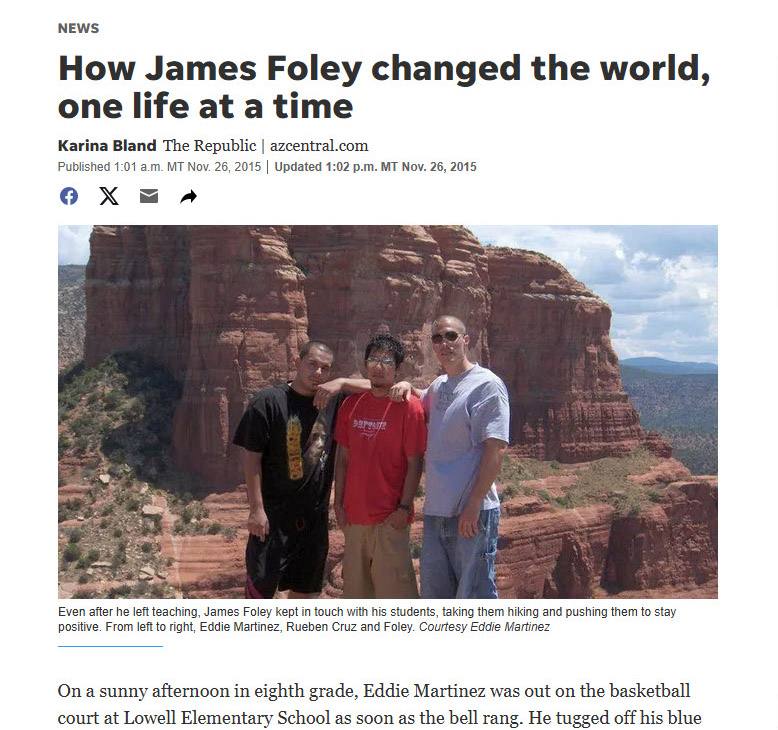
We are inspired by Eddie Martinez, featured in this article. He is one of Jim’s former students at Lowell Elementary School.
Holyoke Care Center

While studying at the University of Massachusetts in Amherst, he volunteered at the Care Center in Holyoke, Massachusetts where he assisted unwed mothers in obtaining their GED while also helping them share their stories.
Cook County Jail, Chicago
While studying at Medill, Jim taught English and writing to young felons at the Cook County jail.
A Journalist
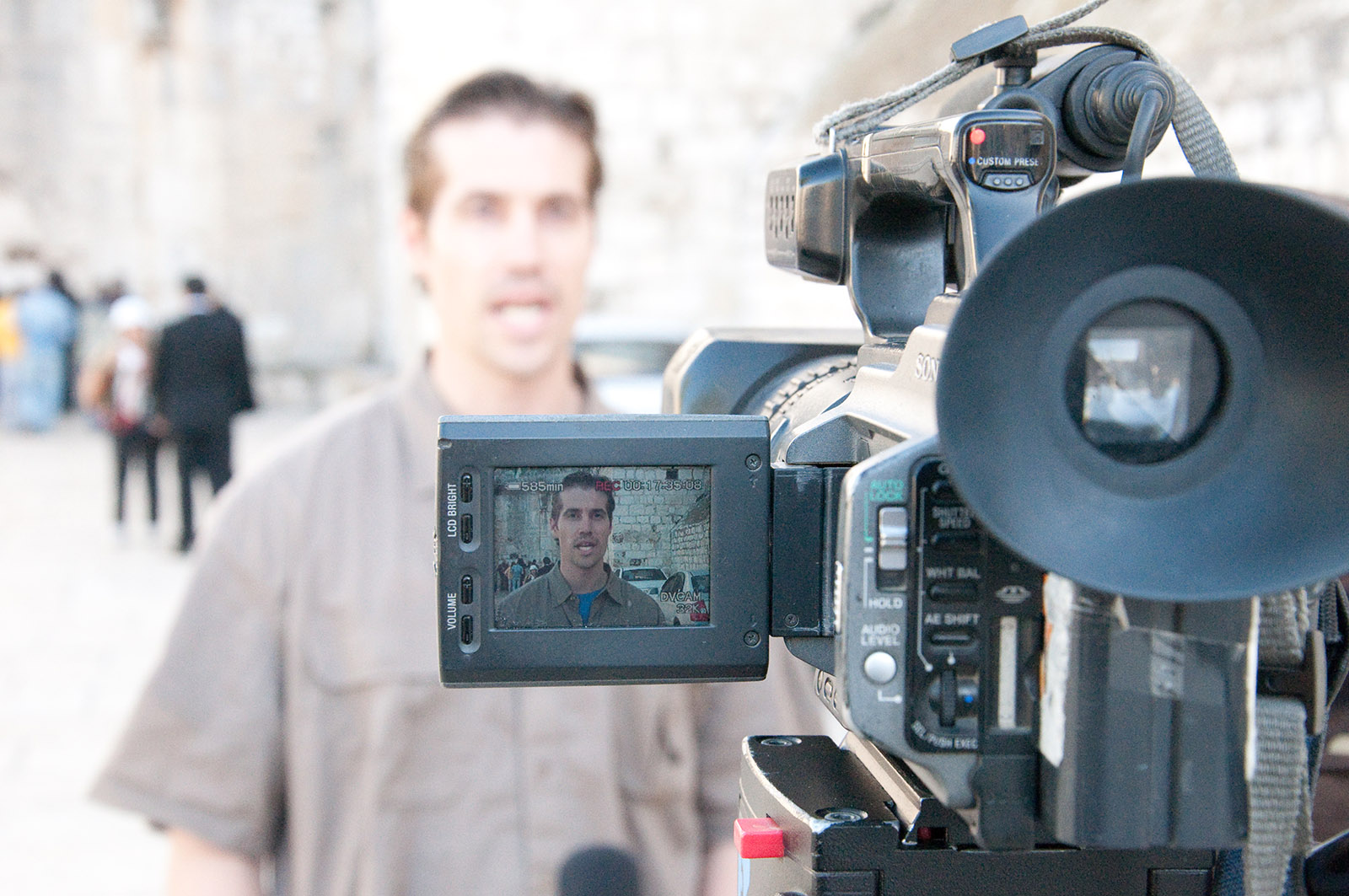
Jim discovered his calling to journalism later in his life. A life-long lover of literature, he first tried creative writing, but soon realized he wanted to tell true stories. After completing his studies at Medill School of Journalism, he embarked on what would become his passion: conflict journalism.
Embedded
Starting in 2008. Jim first embedded with the Indiana National Guard and later the US Army 160th Special Operations Aviation Regiment in Afghanistan and Iraq. He also worked on USAID funded projects in Iraq to pay off graduate school loans.

JIm’s first assignment as an embedded journalist was with the Indiana National Guard in Iraq.
Freelance
Jim went out on his own to report on the “Arab Spring” in Libya and later on the civil war in Syria.
Watch this video to find out more about Jim’s life and work as a freelance journalist.
A Man of Courage
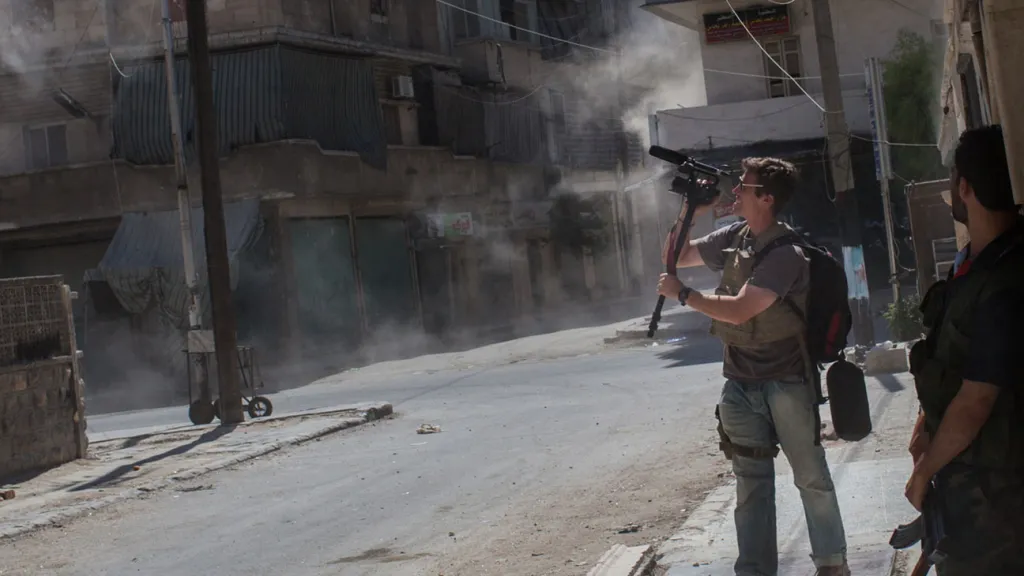
In 2011 Jim was held prisoner by the Libyan government forces for 44 days. On Thanksgiving Day 2012, he was kidnapped in Syria. In August 2014 he was murdered by the Islamic State (ISIS).
Libya

While reporting for the Boston-based GlobalPost as a freelancer, Jim went to Libya to cover the uprising against Muammar Gaddafi, embedding himself with rebel fighters. Jim was detained by the Libyan regime for 44 days and ultimately released thanks to research efforts of Teach for America colleagues and David Bradley of Atlantic Media, who located a US national who persuaded Ghaddafi’s sons to release them.

Anton Hammerl was a South African photojournalist who was in the same car as Jim, American journalist Clare Gillis, and Spanish photojournalist Manu Bravo when they encountered Libyan forces. Jim, Clare and Manu were beaten and captured, but Anton was killed. Jim and Clare organized a photography auction at Christie’s in New York to raise money for the education of his children.
Please help Anton’s widow, Penny Sukhraj, and her family obtain justice for Anton
Syria
In 2012 Jim started traveling in and out of northern Syria as a freelance video journalist. In October 2012, Jim was back in New Hampshire among family and friends who gathered to celebrate his birthday. This was to be Jim’s last trip home.
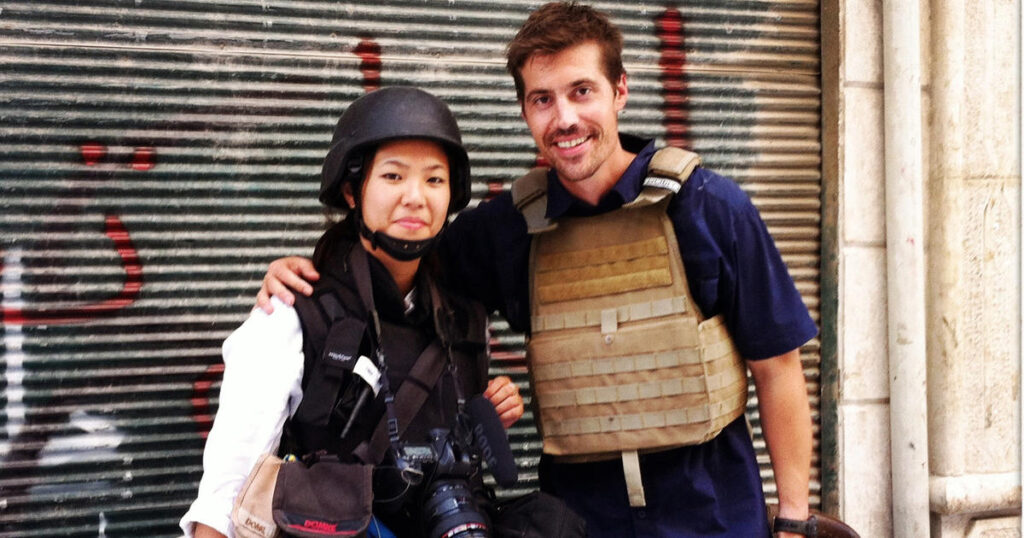
James was kidnapped on Thanksgiving Day 2012 while working as a freelance conflict journalist in Syria. He had been reporting for Global Post of Boston and Agence France Press.
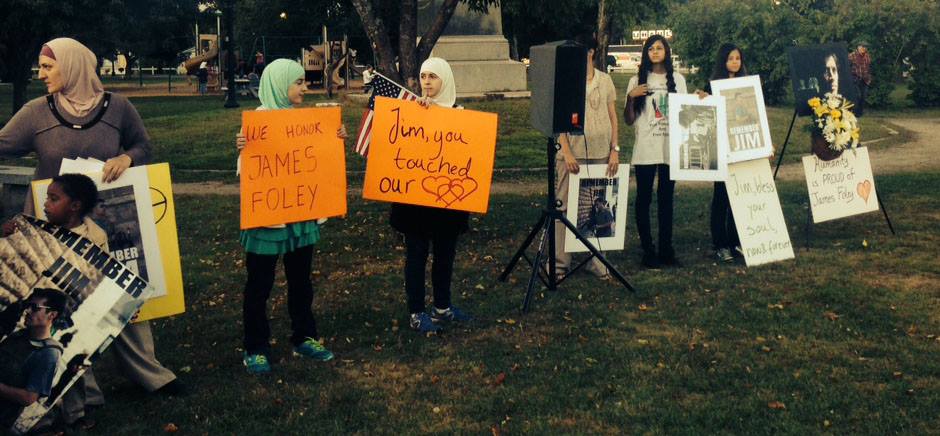
On August 19, the Islamic State in Iraq and Syria posted a video on Twitter (now X) depicting Jim’s brutal beheading because he was an American journalist. “We have never been prouder of our son, Jim. He gave his life trying to expose the world to the suffering of the Syrian people,” said his mother, Diane Foley.
An Inspiration
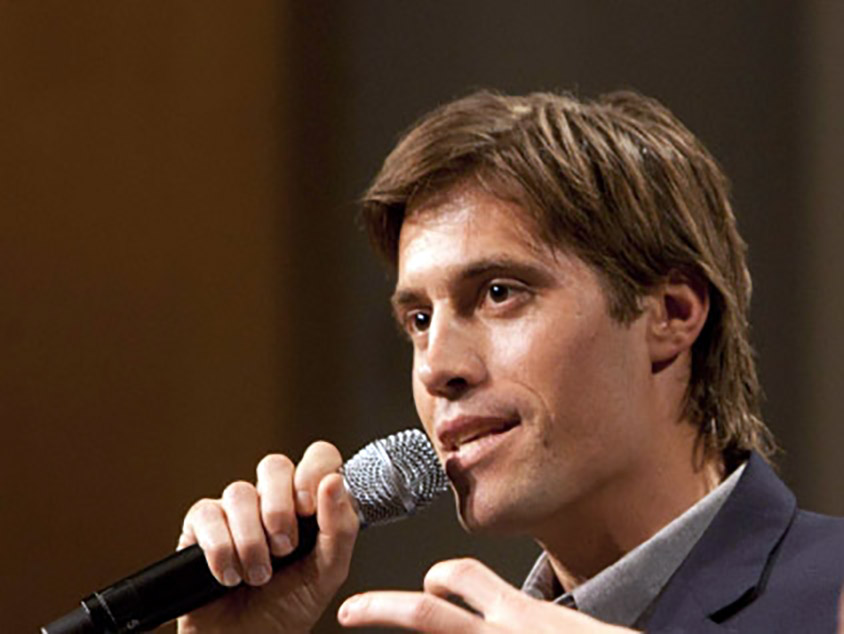
Jim’s life continues to inspire journalists, teachers, our government, and many more to help bring fellow Americans home. Over 140 of them (as of December 2024) have returned since his death and the start of the Foley Foundation.
Moral Courage
After returning from captivity in Libya, Jim spoke about the need for moral courage. Without it, he said, we don’t have journalism. Watch this video to learn about the significance of those words to Jim and others. Moral courage would become the core ethos of the Foundation that would bear his name.
The Foley Foundation
Within three weeks of Jim’s death, the Foley family established the James W. Foley Legacy Foundation, known widely as the “Foley Foundation.”
The foundation advocates for American hostages and wrongful detainees held abroad, and promotes journalist safety. It has driven critical policy and legislative changes, helped create the U.S. government’s “hostage enterprise,” advocated successfully for the return of over 140 Americans held captive abroad, and educated journalists and their employers to know how to protect themselves while carrying out their important work, work that underpins a healthy democracy.
Watch this video to learn more:
Awards in Jim’s Memory
Numerous institutions have created awards and scholarships honoring Jim.
James W. Foley Medill Medal of Courage, Northwestern University

James Foley Award for Conflict Reporting, Online Journalism Association
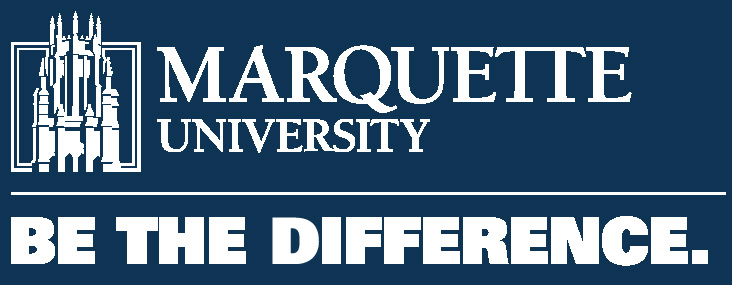
James W. Foley Scholarship, Marquette University: Diederich College of Communication

James W. Foley Middle East Fellowship at GroundTruth Project

James W. Foley University of Massachusetts Memorial Writing Prize
Doctorate in Human Letters awarded posthumously to James W. Foley by Plymouth State University
Learn More

Interested in learning more about Jim and his legacy? Check out these resources:
Jim: The James Foley Story
Watch Jim: The James Foley Story, documentary about Jim’s life, available on Max, Amazon Prime and other streaming services.
American Mother
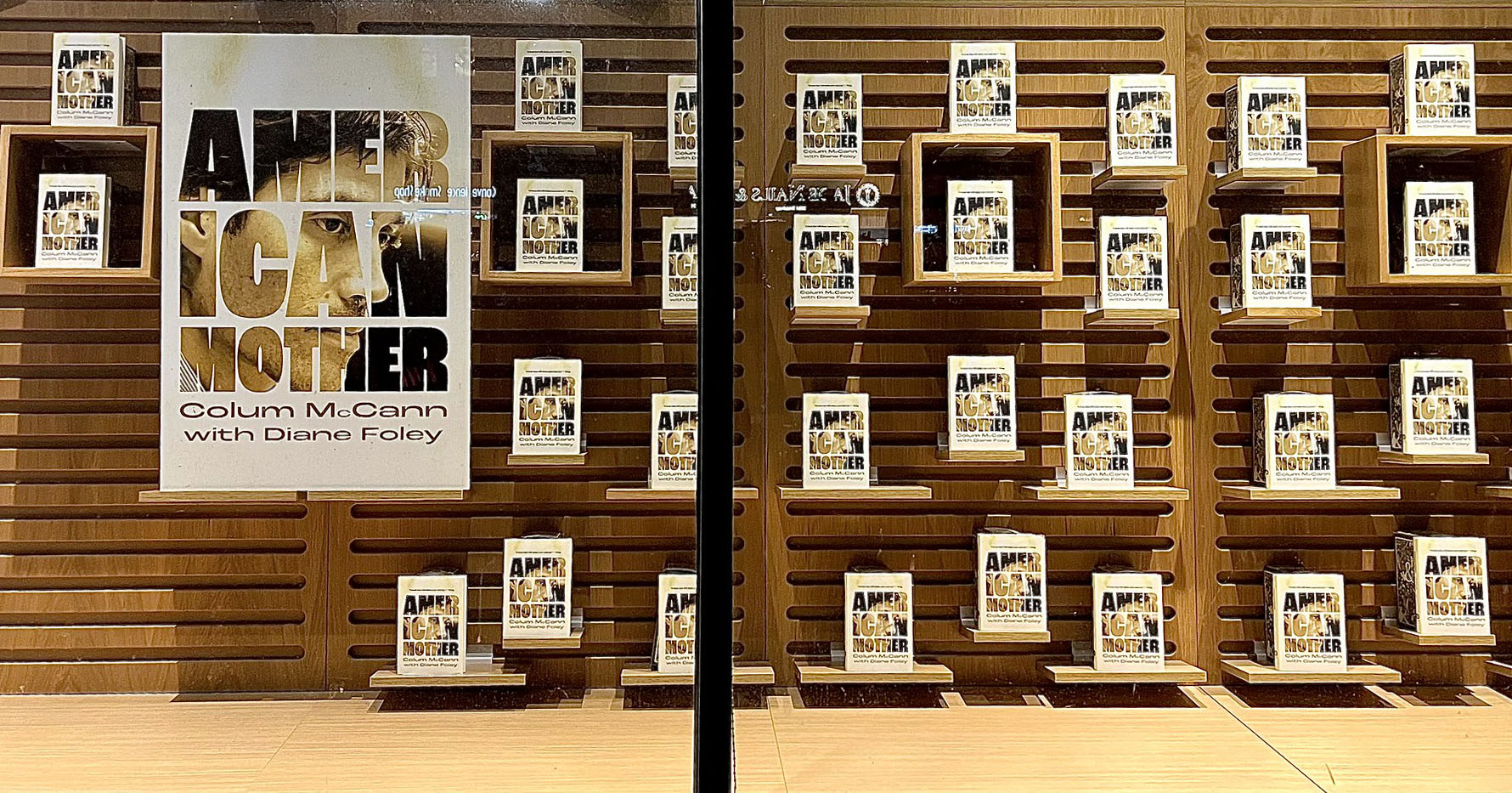
American Mother, written by Jim’s mother, Diane Foley, and renown writer Cullum McCann, is the heart-rending story of a mother who, in the course of confronting her son’s killer, gets to the elemental heart of violence and forgiveness.
Marquette University James Wright Foley Collection
Marquette University is collecting and archiving records from and about Jim. The majority of this collection will be available online once processing and cataloguing are completed. Until then, a sample can be viewed online.
The James Foley Global Citizenship Curriculum
the James Foley Global Citizenship Curriculum, an elective course for high school students. It uses James Foley’s life as a central narrative to inspire students to reflect on their own sense of moral courage and global citizenship within a solid frame of historical context.
“I told my son I wished he had gotten to know Jim Foley, whose kindness and humanity had such an impact when he was here on earth and whose incredible legacy has impacted millions around the globe.”
— Jen Easterly, 2018 James W. Foley Hostage Freedom Award Recipient
